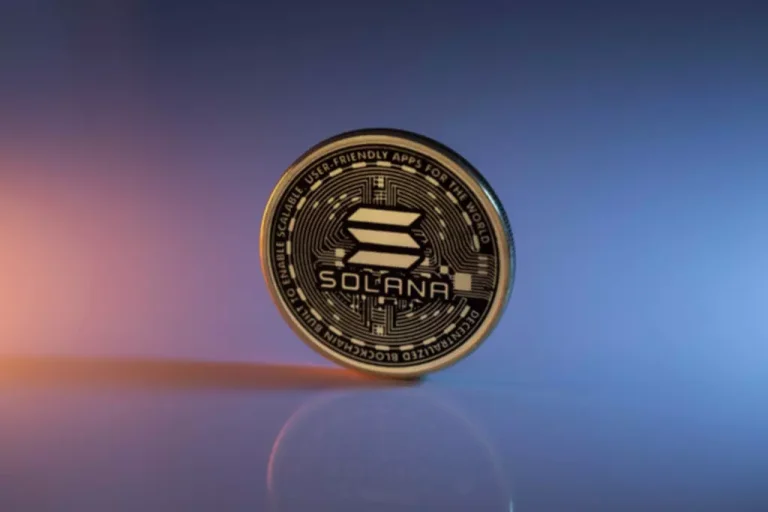With a self-custody wallet, you would possibly be solely answerable for maintaining the safety and backup of your non-public keys. If you lose your private keys or the pockets file, there’s normally no method to recover entry to your funds. Examples of self-custody wallets embrace hardware wallets, desktop wallets, and a few mobile wallets that permit users to regulate their private keys. With custodial wallets and companies, you switch your cryptocurrencies to an handle offered by the custody provider. The platform then assumes duty in your assets’ safekeeping, management, and security.
Non-custodial crypto wallets subsequently supply better safety in comparability with custodial wallets. Using a hardware wallet that capabilities offline can further cut back security vulnerabilities. A self-custodial wallet is a kind of cryptocurrency pockets the place the user has complete control over their non-public keys and the storage of their digital property. It’s considered essentially the most safe type of pockets as a result of the user does not depend on any third-party service. It is liable for storing the belongings and private keys; subsequently, the providers of these wallets should comply with certain necessities.

The concept of non-custodial wallets is critical because it aligns with the core rules of decentralization and security within the cryptocurrency area. By using a non-custodial wallet, you reduce the chance of shedding your funds because of hacks or the mismanagement of your personal keys by a 3rd celebration. Software wallets and hardware wallets are essentially the most generally used non-custodial wallet https://www.xcritical.com/ types. Software wallets allow you to access your pockets through net browsers, mobile units, or computers. Hardware wallets are physical units that help store crypto property offline. Most users, especially beginners, favor to use a custodial wallet as managing personal keys is troublesome for them.
Unleashing The Potential Of Blockchain In Digital Identification Verification And Management
For custodial wallets, the better alternative shall be to find a jurisdiction with special rules for businesses in virtual belongings. Ideally, the jurisdiction should have relatively easy regulation and an uncomplicated authorization or licensing course of. Both custodial and non-custodial wallets have their very own sets of advantages and limitations. For users who prioritise ease of use and backup recovery custodial and non custodial wallet choices, custodial wallets are a smart answer. But for people who want full control and ownership of their private keys, non-custodial wallets may be what they’re looking for. Ultimately, it’s up to the person, and the non-custodial Crypto.com DeFi Wallet is considered one of many choices to think about.
While these wallets may not be an easy goal for hackers as a outcome of involvement of various conformations, they are still vulnerable to safety breaches. When it comes to backup and recovery prospects, self custodial wallets or non-Custodial crypto wallets lag behind the Custodial one. Whereas, within the case of Non-Custodial wallets, all the blockchain custodian services reside with users. For a fast guide on whether or not customers ought to keep their very own crypto key versus letting another person take responsibility, learn on. Yes, custodial wallets are safe to use but customers need to do their very own research earlier than choosing one.

While cryptocurrencies are digital, you probably can print your non-public and public key crypto wallets on paper, accessed by way of desktop apps, or stored offline in hardware pockets gadgets. Yes, the BitPay Wallet is a cell non-custodial crypto wallet which allows users to simply buy, store, swap and spend their crypto from a single easy-to-use platform. Security features like multisig and optionally available key encryption supply peace of mind that your digital belongings are protected.
What Are Cryptocurrency Wallets?
However, custodial crypto wallets undermine this fundamental aspect, as they involve relinquishing control of your funds to a 3rd celebration. This goes towards the decentralized nature of digital currencies and might diminish the investment enchantment. A non-custodial pockets is a kind of cryptocurrency pockets the place the person has sole management over the personal keys, which means they’ve full management over their funds. Unlike custodial wallets, where the non-public keys are held by a third-party service provider, non-custodial wallets give customers complete ownership and responsibility over their property. This offers increased safety, as the consumer is the one one with entry to their funds, and eliminates the danger of the third celebration being hacked or mismanaging the funds.

Non-custodial wallets present the consumer with complete possession of their property by generating and handing over non-public keys at the time of wallet creation. Also generally recognized as a self-custodial pockets, you are the only real custodian of your crypto wallet. The rise in recognition of cryptocurrencies led to the rapid adoption of crypto-wallets. Usually, there are two main forms of crypto-wallets, such as custodial vs non-custodial wallets. Users rely on custodial wallets because managing non-public keys is not an easy task.
What Is Coin Burning In Cryptocurrency? Token Burns Explained
Custodial wallet providers are in style as they’ve good UI, however their numbers are still low because users demand extra management over their crypto wallets. With this coated, let’s look into the constraints of non-custodial crypto wallets to make a impartial choice. Selecting the best type of wallet for storing and safeguarding digital property is essential when it comes to proudly owning crypto.
Custodial wallet-based transactions contain centralized exchanges, so completing a transaction can take more time. In addition, the entire charges charged will be larger because of the association of the custodian. Cryptocurrencies are digital property that operate on decentralized networks and aren’t backed by any central authority.

A third-party crypto pockets platform that holds the personal keys on behalf of the asset holder is named a custodial pockets. When you opt for custodial wallets, you share your personal keys with the custodial service suppliers. The non-public keys underneath the custody of the wallet service supplier mean the third-party custodial wallet service supplier has full entry to your funds.
In contrast, transactions using non-custodial wallets are immediately reflected on the blockchain in actual time. Here, the wallet interacts directly with the blockchain network without any want for third-party authorization. Unfortunately, in phrases of non-custodial wallets, customer help is unavailable or limited. As a result, generally, these wallet customers are on their own when going through problems associated to wallet-based activities.
Unlike best Custodial wallets, these wallets don’t need confirmation from a third party for performing every transaction. This streamlines the whole course of and makes it easier to enjoy instant withdrawals. MoonPay also makes it easy to promote crypto whenever you decide it is time to money out. Simply enter the quantity of the token you’d prefer to promote and enter the small print the place you wish to obtain your funds. MoonPay’s widget offers a fast and simple way to purchase Bitcoin, Ethereum, and greater than 50 other cryptocurrencies.
Definition Of Custodial And Non-custodial Wallets
As a outcome, a third celebration controls your crypto property saved within the pockets. A custodial pockets is a crypto wallet answer wherein a custodian retains entry to your non-public keys and takes care of personal key safety in your behalf. This also means that the custodian has full management over your funds — hence the phrase “Not your keys, Not your crypto.”. With non-custodial wallets, a crypto user has complete management over their non-public key, along with their funds.

The finest examples of custodial services are well-known centralized exchanges all of us use, like Coinbase or Binance. When you deposit your crypto into your change account, the trade holds the funds for you, making it a custodial solution. You do not have direct access to their private keys in such platforms; as an alternative, they depend on the platform’s security measures and infrastructure. Once you deposit your funds into a bank, they’re not under your full control.
Personal Key Possession
As a user, you’ll have the ability to only present permission to switch funds and execute payments. Custodial wallets are often supplied by crypto exchanges corresponding to Binance, Coinbase, and others. Although customers are taking the danger of shedding their funds into their own palms, non-custodial crypto wallets provide better protection towards a data breach than custodial wallets.
What’s The Difference Between Custodial And Non-custodial Wallets?
Moreover, shedding the non-public keys to the pockets ends in the permanent lack of the saved crypto assets. In the case of custodial wallets, a custodian, like a crypto exchange, shops the wallet’s private keys. In distinction, non-custodial wallets enable customers to own and control their personal or secret keys.

Recent Comments